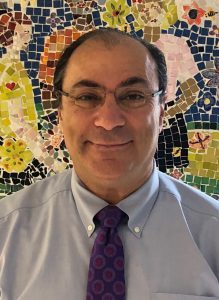This month, we chat with Neil Mufson, longtime headmaster at The Country School, a coed, K-8 school in Easton, Md.
Kalix: What is the most important leadership lesson you learned first as a classroom teacher that prepared you to be a head of school?
Neil Mufson: The ability to confront difficult situations in a timely, honest and human way that is consistent with the school’s best interests, philosophy and culture. It’s almost a daily occurrence. Part of what makes independent schools unique places is that families hire us to be a cut above. My experience is that people need to be called on things when they’re falling short. It’s an underlying firmness but compassionate. I am a real believer that it’s not just what a school does that speaks volumes, it’s what [a school] lets go that speaks volumes, too.
In order for a school to excel and to truly embody a positive culture, difficult situations and behaviors have to be challenged. It’s the only way that we can be our best and be good role models for our students and faculty. There are times of crisis to everyday situations when people are not acting consistently with who we say we are. I try to put things in a positive way. At The Country School, we are constantly talking about kindness.
Q: What is the most important skill for a head of school to possess?
A: Figuring out how to select truly great faculty. I involve a lot of people in every staff decision I make and gather input. Ultimately, I must make my own decisions, though, and articulate why I made the decision. I never hire someone just on my read. I have the person meet as many teachers and students as possible. We also have the candidate teach a class, recognizing that it’s an artificial situation, but we give total freedom in the lesson. We learn a lot from that.
Teachers are the most important element related to the quality of a school. Kids only have one chance at having a great teacher in each grade. I am looking for a fantastic educator, a knowledgeable developmentalist and, in my school, someone who nurtures, and ultimately is an outstanding person. One or two are key, but when you get the combination, you can really soar.
Q: What was your first job at an independent school?
A: My first job was a high school English teacher at a Massachusetts boarding school that specialized in postgraduates who were 19 and 20 years old. That job taught me the importance of acting like an adult when I didn’t feel like one or didn’t want to act like one. It was a long time ago, but I learned the importance of collegial relationships, mentoring, clear direction and a strong articulation of what a school stands for. I also learned how important it is to touch base with everyone for whom you have a responsibility. I still do that today.
Q: What’s your best leadership advice?
A: I spend enormous time building relationships by trying to give them the time they need. This means just being with people and taking time to be present in conversation with everyone from our littlest kids to parents and donors. I write a ton of personal handwritten notes, even though it’s kind of quaint in this day and age. I make sure my assistant schedules enough time [on my schedule] for every conversation and meeting I have. That way, I can be present with the person and not worry about where I have to be next.
Every morning, I do the old-fashioned thing of shaking hands with every student and saying something to the parents, too. In our weekly newsletter, I write something on my musings about our school’s beliefs or something new we’re trying. It’s not an erudite handling of each topic, but more conversational. It’s a small way for people to get to know me. I’m in my 29th year at The Country School and have been doing this for 29 years.
We’re a small, 280-student K-8 program, and when we have an all-school assembly, I choose a topic to share with the students and I get them to participate in the conversation. I see the entire school as my classroom. Just as my teachers are very intentional about how they interact with their classroom, I try to be intentional with the school. Last spring, in assembly I shared, and we discussed, a great Dalai Lama quote, “Be kind whenever possible. It is always possible.” The first day of this school year, I asked if anyone remembered the quote, and, sure enough, they came up with it!
 About Neil Mufson
About Neil Mufson
Neil Mufson has been headmaster at The Country School since 1990. He counts among his accomplishments helping to create a positive culture at the school, raising enrollment to capacity, eliminating a school deficit, leading successful capital, annual and endowment campaigns and overseeing major campus improvements and expansion. Previously, he held administrative and teaching positions at Nashville’s Ensworth School, Princeton Day School, Brookline (Mass.) Public Schools and Worcester Academy. A sought-after independent school leader, Neil has served as president of the Association of Independent Maryland Schools, led various search and re-accreditation committees for independent schools and has been presenter at National Association of Independent School conferences. Equally devoted to Maryland’s Eastern Shore communities, he served on the Shore Health System board, was a founding board member for Building African American Minds and currently sits on the board of directors, Court Appointed Special Advocates of Talbot County. He is a graduate of Brown University (A.B., magna cum laude, comparative literature) and Tufts University (M.Ed. in educational theory and counseling psychology).
Sarah Achenbach is Communications Lead for Kalix Marketing.
Liked this article? Find more stories on leadership here:


